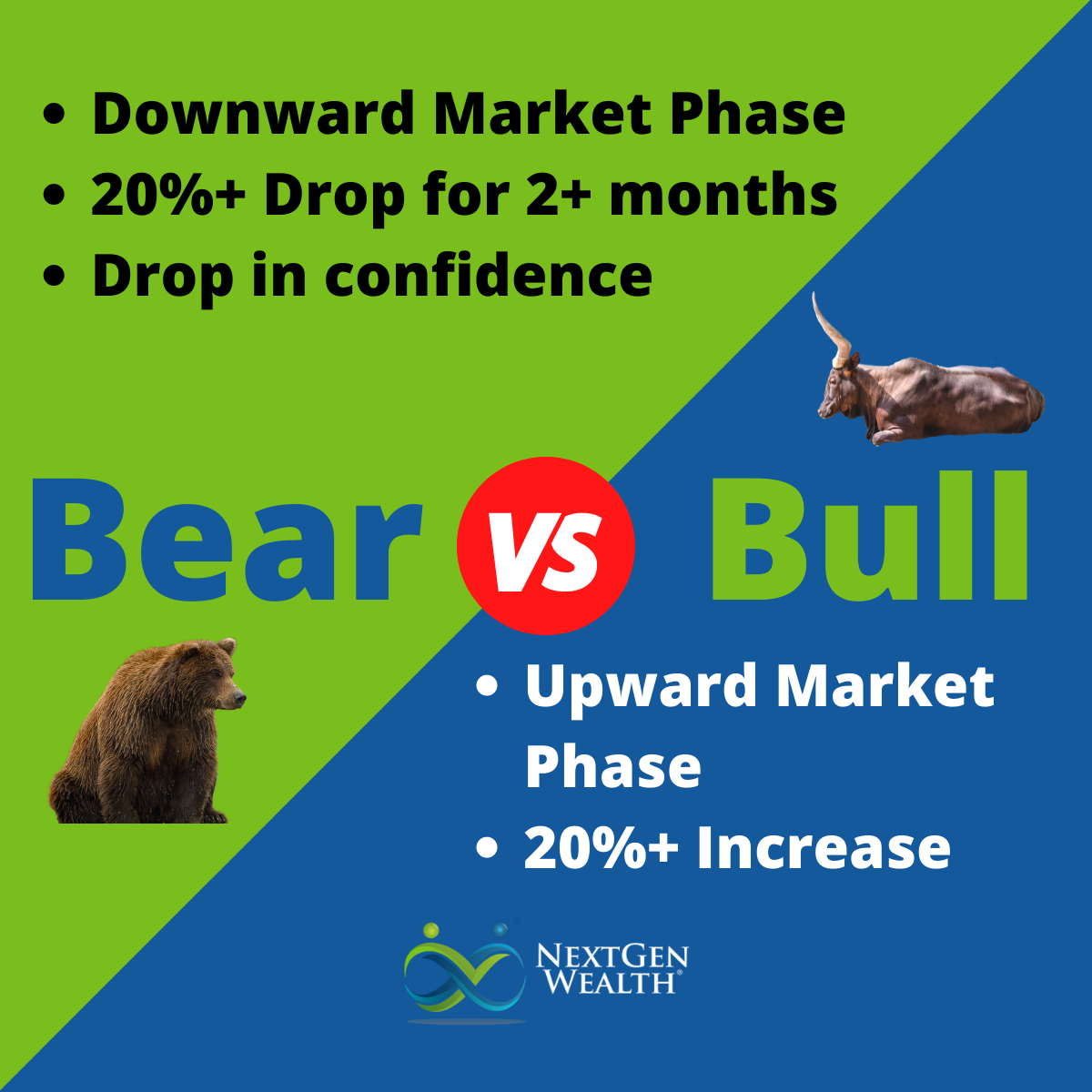The Biggest Mistake Investors Make
This post was last updated on July 30, 2022, to reflect all updated information and best serve your needs.
Whether you’re new to investing or you’re a seasoned pro, you’re bound to make mistakes. As you gain more experience with the market, you’ll be less prone to making impulse decisions. However, there’s one mistake that all investors are bound to make at one point or another – trying to time the market.
While you may think that you’ve got a good handle on the ups and downs of the market, think again. Trying to figure out the exact right time to move your money in and out of the market requires a crystal ball. Not even the experts know for sure when the next downturn or upward swing of the market will happen.
If you’ve ever tried to time the market and succeeded, you may think you have the golden touch. Congratulations – you got lucky! While it seems that you have the market figured out, data shows a different picture altogether.
According to a study published in the Journal of Finance, mutual fund managers who do this for a living are wrong 99.4 percent of the time. If professionals who spend their lives studying the market can be so spectacularly wrong, the odds that the average investor can get it right are pretty slim.
But if timing the market is not the answer, how should you maximize returns? Let’s dive into some ideas for the right way to invest your money.
What does timing the market mean?
First, let’s go over what timing actually means. When it comes to investing, timing the market means that you try to anticipate if stock prices will go up or down. You may think the market will continue to soar and hold onto your stocks in the hopes that you’ll be able to sell them at top value.
On the other hand, if you think the market will take a downward turn, you may sell stocks in an effort to maintain your current gains. If the market has hit rock bottom in your view, you’d buy more stocks on a ‘discount.’ Any time you try to predict what the market will do, and act based on that is considered timing the market.
While mutual fund managers and active traders believe market timing is possible and build a career around it, academics are firmly in the opposite camp. There are good reasons for the average investor to avoid market timing and instead focus on investing for the long term.
Stock market cycles
The stock market goes through cyclical phases – it goes up, reaches peak value, goes down, and then hits bottom. When one cycle is finished, the next one begins. Many investors fail to account for the fact that the market is cyclical in nature or don’t account for the end of the current market phase.
Two terms that you likely hear in connection with the stock market performance are “bear market” and “bull market.” If you’re new to investing, you may not know what each one denotes so let’s dive into the definitions.

What is a bear market?
The term “bear market” is used to indicate the downward phase of the stock market cycle. This is a period marked by falling stock prices and low investor confidence. Investors fearing further loses tend to sell off their stocks, further undermining market confidence.
Typically, a downturn is called a bear market if stock prices fall at last 20 percent or more over at least a two-month time frame. This type of market usually starts after a period of a favorable stock run when investors start to become increasingly pessimistic. As a result, they tend to sell off their investments, leading to widespread panic and plummeting stock prices.
Since bear markets are cyclical, eventually investors try to capitalize on the low stock prices, injecting money back into the market. The increased activity causes general investor confidence to grow and eventually the bear market transitions into a bull market.
What is a bull market?
As you may have already guessed, a “bull market” indicates the upward phase of the stock market cycle. Stock prices tend to increase as investor confidence grows. During this period, trading activity increases resulting in an increase in the price of stocks.
Due to the volatile behavior of the market day-to-day, the term “bull market” is reserved for an extended period of economic growth, usually months or even years. The most common definition involves a phase during which stock market prices rise by 20 percent or more, usually after a decline.
How to invest to improve returns
As you can see from the above, the stock market is never static. Many investors think that if they study the market conditions, they can make the right investment move at the right time. This is called timing the market and has been shown over and over again to be an ineffective investing technique.
If you try to time the market, more often than not you’ll lose money. You’ll also pay an opportunity cost by taking your money out of the market and putting it back in. Additionally, you’ll get hammered with fees at every turn. Your best bet is to avoid timing the market at all. If you’re wondering what the best course is to take as an investor to improve returns, read on.
Ignore market forecasts
There is a lot of noise when it comes to the stock market. Turn on the tv to your favorite news station and chances are there will be a news story on the economy and the stock market performance.
Between tv, radio, newspaper, and online media outlets, the state of the stock market is making headlines. The roller coaster ride of the market means there’s always fodder for news outlets looking to get higher ratings. The state of the economy is a hot topic so many people tune in to listen to the experts about what’s next for the U.S.
One of the best things you can do for your finances is to ignore market forecasts. The only thing to be gained from listening to the latest stock market reports is anxiety.
Even if you had decided not to try and time the market, just listening to the market forecasts can make you change your mind. Investing is a long-term game so don’t let the daily ups and downs cause you to lose sight of your long-term strategy.
Be patient
One of the hardest things about investing is that it takes time. The allure of timing the market is that you may be able to make a lot of money in a short period of time. However, on the flip side, you can also lose a lot of money in a short period of time. More often than not you end up on the losing end.
To truly reap the benefits of investing, you need to be patient. Adopt a long-term investment horizon and ignore anything that says otherwise. Just continue adding money to your investments and make sure you have a balanced portfolio.
It’s a lot easier to be patient if you buy diversified index funds than set and forget your portfolio. Just schedule regular check-ins every couple of months to make sure everything is still on track.
Don’t jump in and out of the market
While it may be tempting to try and capitalize on a hot stock tip or you think you know the perfect time to sell a stock, resist the urge. Jumping in and out of the stock market is a sure-fire way to get subpar investment returns.
Timing the market in this way will ensure you’re constantly trying to guess which way stocks are heading – something no one can really do successfully. The dynamic nature of the markets combined with all of the different factors that go into stock prices makes this a fool’s errand.
An overview of research on stock market trading behavior of individual investors shows the effect of market timing on investment returns. Individual investors:
- Underperform standard benchmarks such as low-cost index funds
- Even seasoned ones have a difficult time covering costs
- Show a strong preference for selling winners and holding onto losers, which makes for a large bill come tax time
- Repeat past behaviors that coincided with positive feelings, such as buying the same stock (or from the same industry) that made them money previously; avoid past behaviors that were negative, such as realizing losses
- Tend to hold undiversified stock portfolios and expose themselves to unnecessary levels of risk
- More often than not buy rather than sell headline-making stocks, leading to speculative trading that could potentially influence the pricing of stocks
Forget about your gut feeling, intuition, or hunches. Successful investors build a balanced portfolio based on their long-term priorities. They set it to rebalance automatically and then go on their merry way.
Ignore the noise
It’s difficult to ignore all of the noise when it comes to the stock market. However, if you want to be successful in the long term, it’s important that you put your blinders on and press on. Making a long-term financial plan that focuses on your personal priorities and goals will help.
The best way to block out the noise is to focus on your personal values and what you hope to achieve with your investments. Next time you’re thinking about making a risky play and timing the market, consider how losing money would affect your goals.
While you may guess right and actually make money, it’s still gambling with your future. If you guess wrong, you’d undo years of hard work and potentially jeopardize your financial plan.
Partner with a trusted financial advisor
Getting your finances in order can be hard. You probably have a lot of questions about the best way to invest your money, how to save for your kids’ education, how to handle debt, and so on. It’s ok if you don’t have all of the answers.
Talking to a trusted financial advisor can help you figure out your priorities and design a plan for the future. It can help you get a clear view of what you want to do in the future and how to get there. Making a plan will also you force you to think about how you want to spend your money.
Once you have a financial blueprint for your future, it’ll help you sleep better at night. Having a roadmap for your finances gives you the freedom to ignore the experts talking about market volatility, the next recession, or a bull market. It gives you the tools to build financial security and learn how to manage your money for long-term success.
Not all financial advisors are created equal. Finding someone who can be a trusted partner and can help guide you are essential. Having the right person in your corner can make all the difference when it comes to stewarding your money and making the right moves.
The bottom line
If you want to be a successful investor, the best thing you can do is ignore the experts. Don’t try to time the market but focus on long-term investing principals. Talk with a trusted financial advisor and work together on an investment strategy that will help you align your goals with your personal values.
One of the best thing things you can do for your own peace of mind is tune out all of the noise. The constant updates on market conditions and the state of the economy can make even the most seasoned investors question their strategy. Don’t lose your focus on your ultimate goal for putting money in the market in the first place.
This is a post from Clint Haynes, a Certified Financial Planner® and Financial Advisor in Kansas City, Missouri. He is also the founder and owner of NextGen Wealth. You can learn more about Clint at the website NextGen Wealth.



